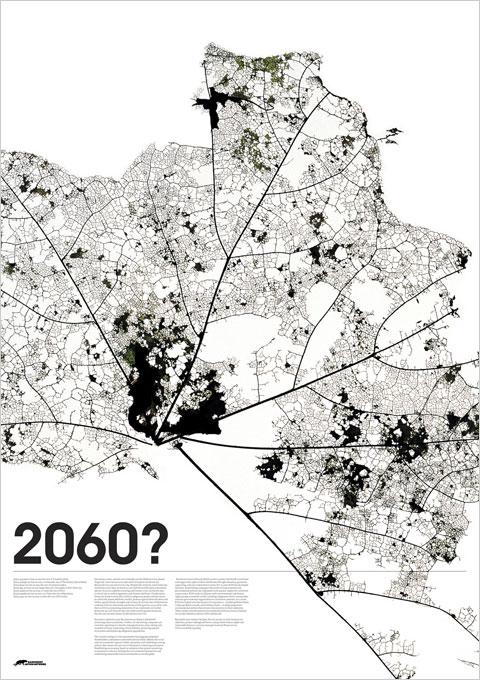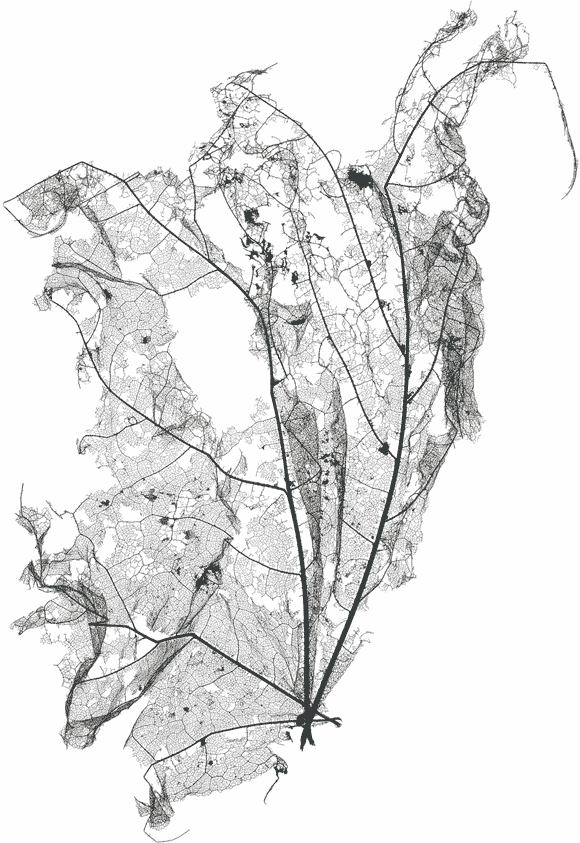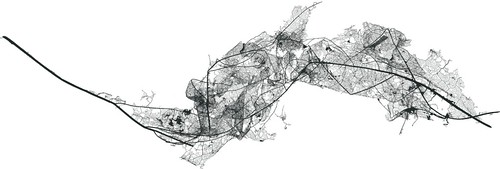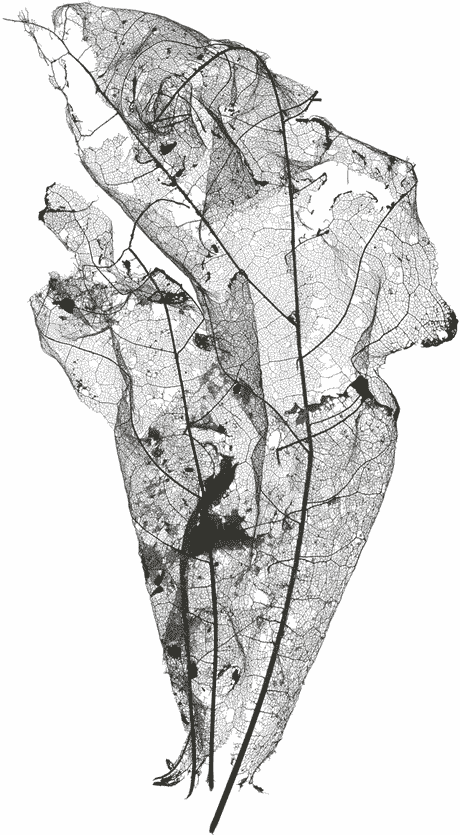Leaving empty space behind
 [Image: From At This Rate, by Giles Revell and Matt Wiley].
[Image: From At This Rate, by Giles Revell and Matt Wiley].Logging roads in tropical rainforests expose whole landscapes to disease, fire, drought, longterm human settlement, and uncontrolled future deforestation.
"Every second we lose an area the size of a football pitch," Giles Revell and Matt Wiley write, describing the ecological motivation behind their new photographic series, At This Rate. "Every day we lose an area larger than all five boroughs of New York City... Every year we lose an area three times the size of Sri Lanka."
 [Image: From At This Rate, by Giles Revell and Matt Wiley].
[Image: From At This Rate, by Giles Revell and Matt Wiley].Revell and Wiley produced At This Rate for a publication by the Rainforest Action Network; the project is "aimed at increasing awareness of the rapid destruction of our rainforests. If this destruction continues, half our remaining rainforests will be gone by 2025 and by 2060 there will be absolutely nothing left."


 [Images: From At This Rate, by Giles Revell and Matt Wiley].
[Images: From At This Rate, by Giles Revell and Matt Wiley].However, what at first appear to be satellite images of obliterated rainforests are actually lone photographs of disintegrating leaves.
These "resemble maps of cities, emphasising the rate of deforestation," fellow architecture blogger Kosmograd writes.
(Originally spotted at Kosmograd).





Comments are moderated.
If it's not spam, it will appear here shortly!
Interesting use of photos.
BTW, completely different topic: buildings as sunflowers?
http://blog.wired.com/gadgets/2006/12/dubai_tower_to_.html
ed
Wow! Cool photos and interesting ideas. I first thought that they were maps, with the colorations showing population density or something. It wasn't until I got to the fourth one that I realized what it was.
Those photos remind me of "Everything That Rises" by Lawrence Weschler. They were having some sort of contest for new images when the book was released and these would have surely won.
Here somelinks about emptifying cities in east Germany:
"SOMETHING odd is happening to the cities of eastern Germany. Plattenbauten, the soulless prefabricated apartment blocks thrown up by the region's former communist rulers, are being knocked down. Occasionally one will be truncated, shorn of its upper storeys. Older streets are gap-toothed where wreckers have removed abandoned houses. Cityscapes are being pruned, removing dead and dying edifices in the hope of saving the rest....":
http://www.economist.co.uk/world/europe/displaystory.cfm?story_id=11025721
http://www.neuland-denken.de/
http://www.nichtmehrnochnicht.de/
http://www.luxus-der-leere.de/Einleitung.htm
Thanks for those links, anonymous. I've seen that movie, actually (Nicht Mehr Noch Nicht), and even have it on DVD.
Post a Comment